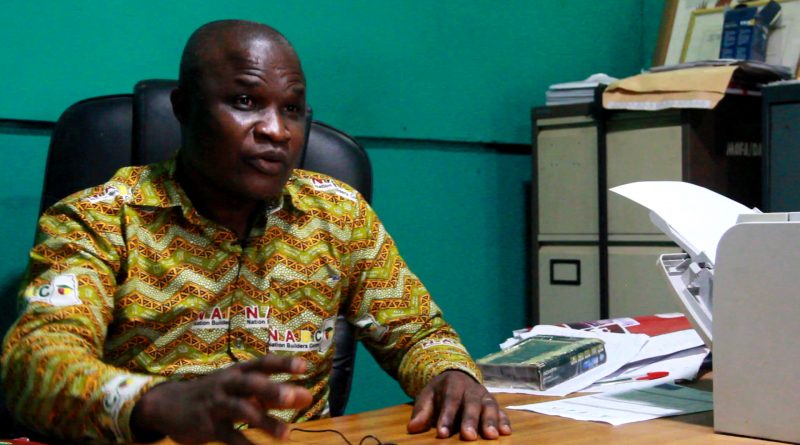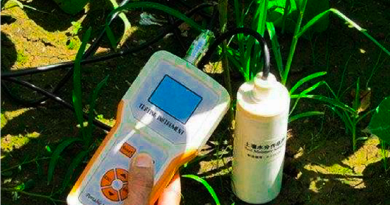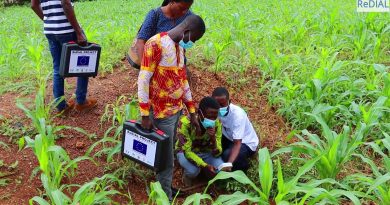Agric Director lauds soil research component of the ReDIAL Project
The Municipal Director of Agriculture in Techiman in the Bono East Region has lauded the soil research component of the Research for Development and Innovation Agriculture and Learning (ReDIAL) funded by the European Union saying it will help prevent wrong application of farming inputs and reduce cost of farming.
Mr. James Adu explained that “one aspect of the project that I am personally elated about is the soil testing component. You know in many years gone by, our farming lands could be allowed to fallow for nearly five years after cultivating it for some years. Today however, the maximum they could allow it is 2 years. Even with that, you cannot discount bush fires on it so the land is unable to gather enough humus and other soil nutrients before the next cropping season”.
He continued that “the other challenge is how farmers would accept any fertilizer introduced to them by agro chemical dealers. In some situations, if we had done soil testing, the farmer might have known that the Nitrogen levels in her soil was enough and may need only phosphorus. But because there has not been any soil testing, immediately the farmers need fertilizer, they are asked to buy for example 23-10-15. This is one of the reason I am personally excited about the ReDIAL project because the soil testing component of will on a pilot bases try to address this challenge.
Techiman is arguably the leader of food crops production in Ghana. They produce in large quantities crops such as maize, yam, beans and other cereals. Buyers from Ghana and neighboring countries visit the town to buy them for export. Several Senior High Schools managers visit the town to stock up their pantries.
Mr. Adu however pleaded with the ReDIAL project managers to consider procuring mobile soil test kits in large quantities that could be distributed to farmers so they could on their own test their soils readily on hand anytime they are choosing which areas of their lands for which crop it may better produce good harvest.
He concluded that “areas we fall short is the production of cowpea and Rice. But these shortfalls are largely due to the absence of threshers for these crops. As with maize, some mobile threshers are available. But with the coming of the multi-crop threshers, we will sell the message to farmers with suitable lands to venture into Rice and cowpea production, as threshers are going to be available during harvest time”.



